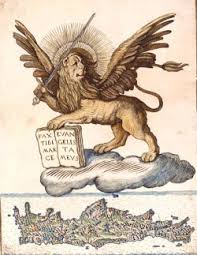Current events and history combine in the story of Bruna Malaguti, who grew up in Porto Marghera: “An atrocious place”
By Mitia Chiarin
03 February 2024
“Porto Marghera was an atrocious place, but I was born there, and I feel like the little plants growing in cracks in the asphalt. I am a daughter of hydrocarbon.”
Sometimes it happens that you find yourself faced with a story, a small and personal one, but one that tells us about a piece of collective and still current history.
The connection is the city council’s choice, after years of promises to move it, to keep the San Marco Petroli depots just over a hundred meters from the houses of Malcontenta.
The news has made Bruna Malaguti, a well-known speaker and voice on the Veneto radio stations, open her album of memories. Because she was born a stone’s throw from a coastal warehouse in 1955 and lived there until she was 8 years old.
“I think it’s quite a unique characteristic of my life. I was born on Via dei Petroli. I lived next to the coastal depot of what was then Italian Shell. And I grew up among workers, trucks, and the trains that entered the factory.”
The photos from that time take us back to Bruna as a smiling little girl, playing in the snow among the warehouses and refineries of the Isola dei Petroli, where Petroven and Eni’s biorefinery are located today.
An oil peninsula, created from reclaimed land overlooking the lagoon beyond the Brentella canal where the oil tankers docked.
In the 1960s, the Petroli canal was dug to prevent oil tankers from passing in front of San Marco (such as the cruises banned from the Basin). The companies at the time were called Dicsa, Agip, Irom, Damiani and Giorgio, Api, and above all the large multinationals, Gulf, Shell, Esso. These were the years of the start of the great working Porto Marghera, where over 40 thousand people worked in the 1970s.
Bruna Malaguti continues. “The house where I was born can still be seen today next to the entrance of Petroven. My father had been hired by Shell as a factory manager. He was among the few graduates available after the end of the war, and my parents arrived in Marghera from Genoa, still very young. He was a manager, and his contract even included the house as a benefit. We were doing well financially,” she explains.
“As children you get used to everything straight away and I quickly got used to playing amidst the coming and going of trucks and workers. I often played with my aunt, who was sixteen years old at the time, and who is like an older sister to me. My mother, on the other hand, struggled: I remember when the kitchen windows were open the stench of the queued trucks would come in and she protested, asking them to turn off the engines”, she says.
“I learned to write my first words by watching TV because they never took me to kindergarten, it was awkward getting around from there. I played on the salt marsh in front of the factory, among toads and puddles.”
At 5 years old, Bruna witnessed, along with her mother, the tragedy of September 1960, forgotten like many others: the raging fire of the oil tanker Rosa Pellegrino. Three died: the commander, the chief engineer and his wife, while fourteen crew members were burned.
“Dad, who was at the company, immediately notified my mother, telling her to run out of the house with me as far away as possible. We took refuge in the salt marsh. The smoke was very high, and many firefighters were working to put out the flames. The area was full of people watching.”
Bruna was then sent to primary school at Vecellio, in the center of Mestre. “At first I struggled to fit in with the other children. I had grown up among adults, the workers who arrived on bicycles or on the buses from Via Righi that collected those arriving from Eastern Veneto. Many were farmers who had left the countryside to work in the factories. I learned so many jokes that other children didn’t understand,” she recalls.
Memories give way to a bitter taste in the mouth. “We later learned how atrocious this page of history was. In one photo I am with my grandfather: behind us you can see the canal that no longer exists. It was filled with poisoned soil. The choice to build the enormous industrial area next to Venice and its lagoon, which are so fragile, is equal to the Vajont tragedy”, she explains.
The great city of work transformed Mestre, where houses were frantically built for the families of the workers.
Marghera became the center of battles for work and for rights – and also about health. Bruna, meanwhile, went to live in Carpenedo, then on Via Miranese with her parents. She has grown up, but she doesn’t forget. “My father-in-law, a worker at Fertimont, died of cancer just a few years after retiring. And there are so many others like him”.
Source: La Nuova di Venezia e Mestre

